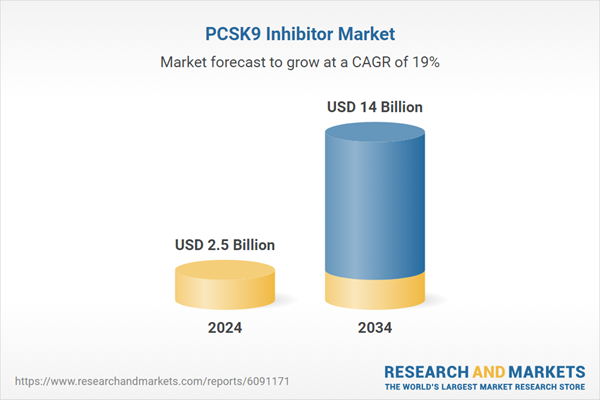The notable growth in the PCSK9 inhibitor space is primarily fueled by the increasing prevalence of cholesterol-related disorders such as familial hypercholesterolemia and atherosclerosis. With growing awareness about the risks tied to elevated LDL cholesterol levels, more patients are actively seeking effective treatment options. Public health initiatives and educational campaigns have played a major role in spotlighting the importance of cholesterol control, significantly boosting treatment uptake. Patients now demonstrate better adherence to prescribed regimens, largely due to improved understanding and wider accessibility of PCSK9 inhibitors. Healthcare professionals, guided by updated clinical guidelines, are prescribing these therapies more frequently, especially for individuals facing high cardiovascular risks. Advanced reimbursement structures across developed regions, particularly in North America and Europe, are ensuring broader access to high-risk populations, adding further momentum to market growth. PCSK9 inhibitors work by blocking a specific protein that hinders the liver’s ability to eliminate LDL cholesterol, helping achieve superior cholesterol reduction compared to traditional therapies.
The evolocumab segment held a dominant 52.4% share in the PCSK9 inhibitor market in 2024, reaffirming its position as a preferred therapy for cholesterol management. With a strong clinical record of significantly reducing LDL cholesterol among high-risk patients, evolocumab remains the benchmark treatment. Healthcare providers continue to prioritize evolocumab for patients who either do not respond to statins or need aggressive lipid-lowering strategies. The surge in cardiovascular conditions, driven by aging populations and unhealthy lifestyles, is expected to further elevate the demand for reliable therapies like evolocumab, enhancing the segment growth outlook through the forecast period.
Fully humanized monoclonal antibodies generated USD 2.2 billion in 2024 within the modality segments. These biologics are meticulously engineered for high specificity, minimizing immune-related side effects while delivering powerful LDL-lowering outcomes. Advances in antibody technology and scalable production processes have enhanced therapeutic safety, broadened accessibility, and enabled extended dosing intervals, improving patient retention rates. As clinical data continues to show a reduction in major cardiovascular events, their integration into frontline treatment protocols is deepening steadily.
The U.S. PCSK9 inhibitor market is projected to generate USD 5.9 billion by 2034. This growth is anchored by the country’s high cardiovascular disease burden, robust reimbursement environment, and strategic investments in precision healthcare. Updated national clinical guidelines that position PCSK9 inhibitors as first-line therapies have accelerated prescribing rates. Physician education campaigns and targeted patient outreach efforts are further solidifying the U.S.'s leadership in the global cholesterol management space.
Key players in the Global PCSK9 Inhibitor Market include Sanofi, Regeneron Pharmaceuticals, Junshi Biosciences, Amgen, Akeso Biopharma, Novartis, and Innovent. To strengthen their competitive edge, companies are expanding biologics pipelines, forming strategic partnerships for accelerated drug discovery, and investing heavily in real-world evidence studies. Collaborative efforts with healthcare systems, advancements in biosimilar development, and innovations in personalized dosing solutions are enhancing global reach and driving higher patient adherence.
Comprehensive Market Analysis and Forecast
- Industry trends, key growth drivers, challenges, future opportunities, and regulatory landscape
- Competitive landscape with Porter’s Five Forces and PESTEL analysis
- Market size, segmentation, and regional forecasts
- In-depth company profiles, business strategies, financial insights, and SWOT analysis
This product will be delivered within 2-4 business days.
Table of Contents
Companies Mentioned
The companies featured in this pcsk9 inhibitor market report include:- Akeso Biopharma
- Amgen
- Innovent
- Junshi Biosciences
- Novartis
- Regeneron Pharmaceuticals
- Sanofi
Table Information
| Report Attribute | Details |
|---|---|
| No. of Pages | 120 |
| Published | April 2025 |
| Forecast Period | 2024 - 2034 |
| Estimated Market Value ( USD | $ 2.5 Billion |
| Forecasted Market Value ( USD | $ 14 Billion |
| Compound Annual Growth Rate | 19.0% |
| Regions Covered | Global |
| No. of Companies Mentioned | 8 |









